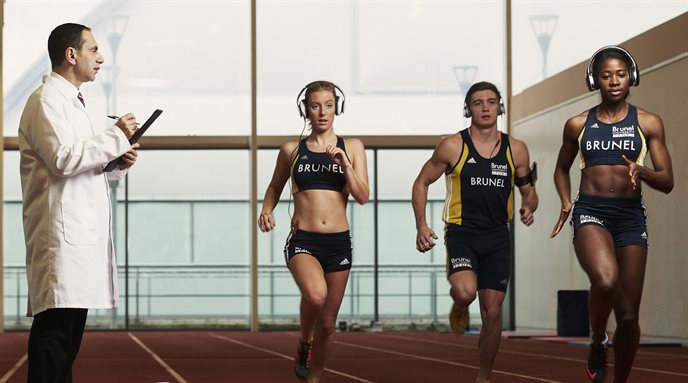Universities have long been recognised as a backbone of their local communities, providing enriching jobs, quality education and a hub for exciting events to those that live nearby.
Perhaps less well recognised though is how much universities contribute to the health and wellbeing of their neighbours, often offering quality access to facilities and knowhow that is out of reach to groups not served by traditional sports clubs and gyms.
To help champion the great work universities do towards the wellbeing of their community and the country at large, Universities UK this week launched MadeAtUni: Energising Places, a new initiative that showcases how local universities can help their area get back on its feet as it lifts itself out of the coronavirus pandemic.
“For years universities have been improving the nation’s health and wellbeing through their science, research and community-led projects, including public use of sports facilities,” said Prof Julia Buckingham CBE, Vice Chancellor of Brunel University London and President of UUK.
“Prior to the pandemic over 80% of university sports facilities were being used by local grassroots clubs, and we want to make it clear to government that universities can help resolve the pandemic’s impact on physical activity levels by filling gaps left by the closure of traditional leisure facilities.”
So, today we celebrate just a small selection of the great work currently happening at Brunel aimed at developing a healthier, happier community.
Clubs
Active 50s Plus Club
Since 2006, Brunel has run the Active 50s Plus Club, a weekly sports and leisure club that helps those over 50 maintain a healthy lifestyle.
Now with over 170 members, the club gives its members the opportunity to participate in a range of fun and engaging activities, including badminton, tennis and table tennis, as well as use the sauna and steam room spa facilities at the on-campus Lancaster Hotel – all for the tiny annual fee of just £30.
Wheelchair Basketball
Twice a week Brunel hosts the Brunel Bulls Wheelchair Basketball Club, run to help those with physical disabilities in West London participate in team sports.
Launched by Brunel academics Dr Mellissa Prunty and Dr Meriel Norris, the club runs sessions for both adults and children, offering a fun and competitive sporting environment for those who often struggle to find a team at a traditional sports club.
Scholars
Ealing Trailfinders Rugby Scholarship Programme
Brunel and local professional rugby outfit Ealing Trailfinders run a fully-funded scholarship programme that allows budding young players the opportunity to study for a degree whilst pursuing a professional sports career.
The scholars – 150 men and 40 women – will soon get access to a new £2m rugby performance centre being built at Brunel, which will feature a new ‘World Rugby’-standard artificial pitch, a 1200m2 high-specification indoor gym and world-class specialist sports and rugby equipment.
Research

How music boosts sporting performance
Prof Costas Karageorghis is one of the world’s leading researchers into how music boosts sporting performance, keeps focus pin-sharp and improves post-workout recovery.
His research, which has been covered in many of the world’s most popular newspapers, has shown that music is like a legal performance-enhancing drug, cheating tiredness and sparking feel-good vibes.
Using sport as a tool for community engagement
Prof Louise Mansfield’s research has found that developing and designing sports activities in partnership with the local community could be key to meeting government targets for raising activity levels – and to improve wellbeing by making them feel happier.
The study, funded by Sports England, involved the co-design of sport programmes with local people in Hounslow, West London.
Making Sport Safer
Dr Misia Gervis has shown that injury is a major cause of mental health problems in top footballers, according to a study of counsellors working with the Professional Footballers’ Association. Dr Gervis led the review alongside the PFA, recommending that an increase in the use of sports psychologists could help injured footballers on their road to recovery.
Reported by:
Press Office,
Media Relations
+44 (0)1895 268965
press-office@brunel.ac.uk